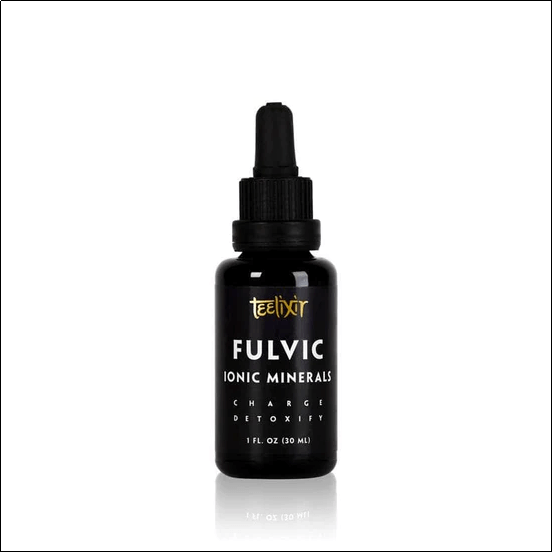Natural microbial decomposition of organic matter produces fulvic acid, an organic acid. Naturally occurring sources include the soil, water, and certain plants and herbs like ginseng and turmeric. Keep in mind that the amount of fulvic acid in these meals varies widely and is not always obvious. Additional fulvic acids benefits include:
Advantages of Fulvic Acid
Have antioxidant characteristics
Chemicals called antioxidants can protect cells from damage caused by free radicals. Unstable molecules known as free radicals can cause damage to cells and have been linked to the development of diseases like cancer and cardiovascular disease. In this way, antioxidants protect cells from the damage caused by free radicals.
In addition, oxidative stress has been linked to the ageing process. As they mop up free radicals, antioxidants may help slow down the ageing process and improve overall health and well-being.
Some research suggests that fulvic acid, an organic acid produced when microbes break down organic materials, may have antioxidant effects.
Assisted absorption of nutrients
Fulvic acid is an organic acid formed when bacteria digest organic matter. Some research suggests that fulvic acid may help with the body’s absorption of vitamins and minerals from food.
- Improve people’s overall health and happiness
- an energising boost
- Raise the level of immune response
- Some nutrients necessary for brain health and cognitive function can be obtained through the ingestion of fulvic acid.
Enhanced immunity
When microbes break down organic matter, they produce fulvic acid, an organic acid. Incorporating fulvic acid into your diet has positive effects on your immune system.
The immune system is the body’s primary defence mechanism against foreign invaders. A healthy immune system is essential for avoiding illness and maintaining a healthy lifestyle.
Chronic diseases, such as cancer and cardiovascular disease, may start as an immune system malfunction. By enhancing the immune system, fulvic acid helps reduce the risk of these and other chronic diseases.
If you want to be healthy and happy, you need to take care to keep your immune system in good shape. Because of its potential to improve immune function, fulvic acid may have other beneficial effects on health as well.
Reduces inflammation
When microbes break down organic matter, they produce fulvic acid, an organic acid. The use of fulvic acid, which has been suggested to have anti-inflammatory benefits, can help reduce inflammation in the body. Inflammation is a natural immune response to damage or infection, but chronic inflammation has been linked to the development of diseases like heart disease and cancer.
Inflammation can worsen a number of health problems, including arthritis, asthma, and allergies. For example, fulvic acid has been shown to have anti-inflammatory effects, which suggests it may have positive effects on health.
Fulvic acid-containing foods
Different types of mushrooms
Some mushrooms may be good sources of fulvic acid, as this has been postulated. Benefits like these are why medicinal mushrooms are so commonly used in alternative medicine.
Fermented foods
Fermented foods, such as miso and kimchi, may contain fulvic acid. Fermented meals, which are made by allowing microbes to break down the food, have gained popularity due to their purported health benefits.
Algae
Spirulina and chlorella are two examples of algae that contain fulvic acid. There is a wide range of purported health benefits associated with algal consumption, so they are commonly found in supplement forms.
Water
Spring water, mineral water, and other forms of water drawn from the earth may contain trace amounts of fulvic acid. As a rule, this water is rich in minerals and is thought to improve one’s health in a number of ways.
Herbs
The presence of fulvic acid has been speculated to occur in minute quantities in various herbs, including ginseng and turmeric. Since many people put their faith in the purported health benefits of herbs, their use is common in complementary and alternative medicine.
Since the early 1900s, fulvic acid’s naturally occurring chemical has been used to treat a wide variety of illnesses. Just like pine needle oil, fulvic acid’s anti-inflammatory and skin-nourishing properties make it a must-try.

